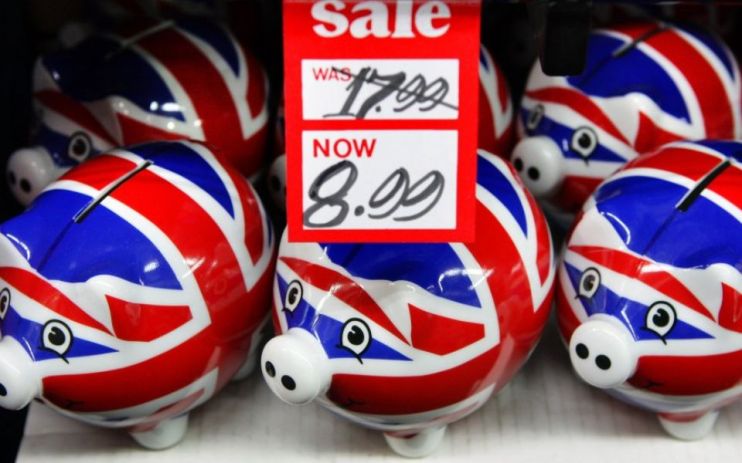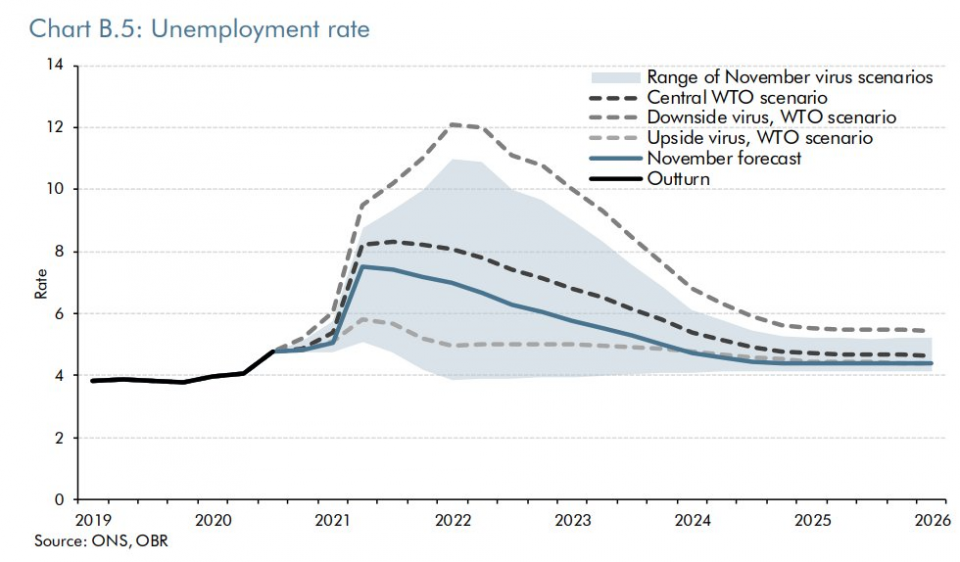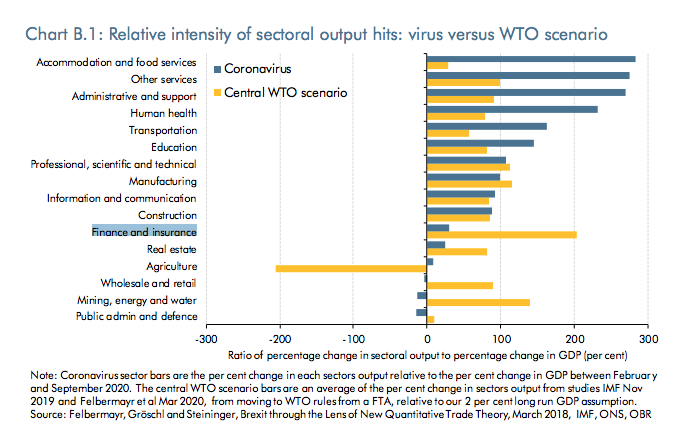OBR: ‘No-deal’ Brexit to wipe 2 per cent off GDP – with finance worst hit

Official forecasts suggest a “no-deal” Brexit will hit the UK economy to the tune of two per cent next year and scar the economy for years to come.
The Office for Budget Responsibility (OBR) forecasts that real GDP will be 1.5 per cent lower in five years than its current central GDP assumption if London and Brussels do not strike a deal.
The forecast also predicts that unemployment could rise to eight per cent under a no-deal scenario, which is almost one percentage point higher than if a deal is reached.

The figures reveal that financial services would be among the hardest hit, with the sector impacted far more by a no-deal departure than by the virus.
The City of London is expected to lose its current access to the EU on 1 January and will instead have to rely on a patchwork of national regulations set by individual countries.
This will make it very difficult for firms to operate across Europe, with most major banks setting up bases in European capitals to prepare for the changes.
Hopes had been high that a deal would soon be struck between the EU and the UK, but progress was delayed by a Covid-19 positive case within EU negotiator Michel Barnier’s team.
Last week Andrew Bailey, the governor of the Bank of England, said the hit from a departure without a deal would be worse than the long-term impact of Covid-19.
This was in stark contrast to comments by Rishi Sunak on Sunday, with the chancellor claiming that Covid-19 would have a worst affect on the UK economy than a no-deal Brexit.

Labour shadow chancellor Anneliese Dodds hit out at the chancellor for not once mentioning Brexit in his spending review speech.
“In less than 40 days we’re due to leave the transition period, yet the chancellor didn’t even mention that in this speech,” she said.
“There’s still no trade deal, so does the chancellor truly believe his government is prepared and he’s done enough to help those businesses that will be heavily affected? “
Time is running short to close a deal before the UK leaves the EU’s single market and customs union on 31 December.
Talks remain deadlocked, with state subsidy regulations, which are a part of the level playing field talks, and fisheries the largest barriers to a deal.